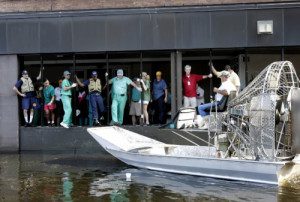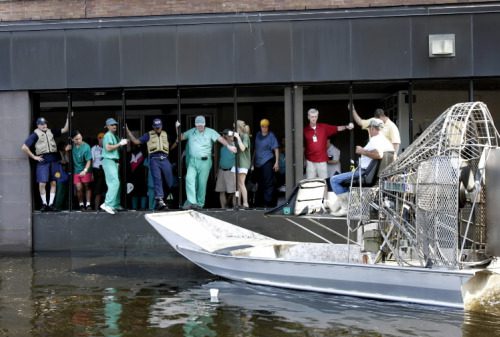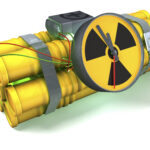Secretary Napolitano has been a little testy when asked about the level of all-hazards readiness within the Private Sector. She has good reason to be concerned about many private sector industries  where up to 90% of the response capacity is owned and controlled by the  public and private organizations (i.e., non-Federal). The Department of Homeland Security has passed its tenth birthday. In addition to its long and painful gestation period, some of its congenital defects interfere with its ability to thrive.  Congressional turf wars and lack of interagency coordination have stifled its growth, leaving the nation ill prepared to deal with an evolving hostile geopolitical and climate/weather related environment.
Is there a point in time when these threats will force “mandatory†compliance on those sectors which continue to fail to deal with their expected roles and responsibilities in the nation’s strategy for Homeland Security? A good example is the Chemical industry (CFATS), which has been an obvious frustration for Congressional oversight, leaving the question: “is it possible for the Private Sector to meet its duties to a trusting public on a voluntary basis?â€
The Public Health and Healthcare Sector is and has been characterized as the “weakest link in the Homeland Security chainâ€.
 The weakest links within the Healthcare delivery system continuum of care are found outside the traditional brick and mortar healthcare facilities; ambulatory care operations tend to be less well prepared with the most vulnerable in long-term care and home health care sites, as detailed in recent OIG reports.
The weakest links within the Healthcare delivery system continuum of care are found outside the traditional brick and mortar healthcare facilities; ambulatory care operations tend to be less well prepared with the most vulnerable in long-term care and home health care sites, as detailed in recent OIG reports.
The frenzy to get ahead of the ACA power curve has stimulated a rush to merge with and acquire all manner of healthcare organizations. Â Ironically these sites, including traditional hospitals, are ill prepared to meet all-hazards preparedness envisioned by the National Response Framework (NRF).
What is the nation’s threshold or level of tolerance for avoidable deaths among the most vulnerable among us? Is there a callous disregard for the value of the frail elderly populations? The death of 20 children in CT and child abuse at Penn served as a catalyst to outrage the public and a call for immediate action however, the avoidable deaths of hundreds of elderly in Katrina New Orleans had little more than a ripple effect on a nation which has traditionally measured its moral, ethical and legal duty to their social structure by the level of humanitarian treatment of their young and old.
 It may be of value to look to history as a guide to the future. The nation’s propensity to undervalue preparedness and dramatically and zealously respond to disastrous events  after they have occurred, points to a culture where over-correction seems to be more highly valued than initial preparation. All organizations involved in either mergers or acquisitions must keep this in mind as they develop expanded delivery systems, that existing accreditation and certifications  may not be the standard to which readiness is judged, which should be  self-evident given the track record of the last 10 years.  The combination and integration of several unprepared entities could result in enormous financial risk should the private sector preparedness compliance become mandatory.
It may be of value to look to history as a guide to the future. The nation’s propensity to undervalue preparedness and dramatically and zealously respond to disastrous events  after they have occurred, points to a culture where over-correction seems to be more highly valued than initial preparation. All organizations involved in either mergers or acquisitions must keep this in mind as they develop expanded delivery systems, that existing accreditation and certifications  may not be the standard to which readiness is judged, which should be  self-evident given the track record of the last 10 years.  The combination and integration of several unprepared entities could result in enormous financial risk should the private sector preparedness compliance become mandatory.
Also remember the 9/11 Commission’s recommendation:
“We responded by asking the American National standards Institute (ANSI) to develop a consensus on a National Standard for Preparedness for the private sector. …â€Â “We also encourage the insurance and credit-rating industries to look closely at a company’s compliance with ANSI standards in assessing its insurability and creditworthiness. We believe that compliance with the standard should define the standard of care owed by a company to its employees and the public for legal purposes. Private-sector preparedness is not a luxury; it is a cost of doing business in the post-9/11 world. It is ignored at a tremendous cost in lives, money, and national securityâ€.
Caveat Emptor






0 Comments